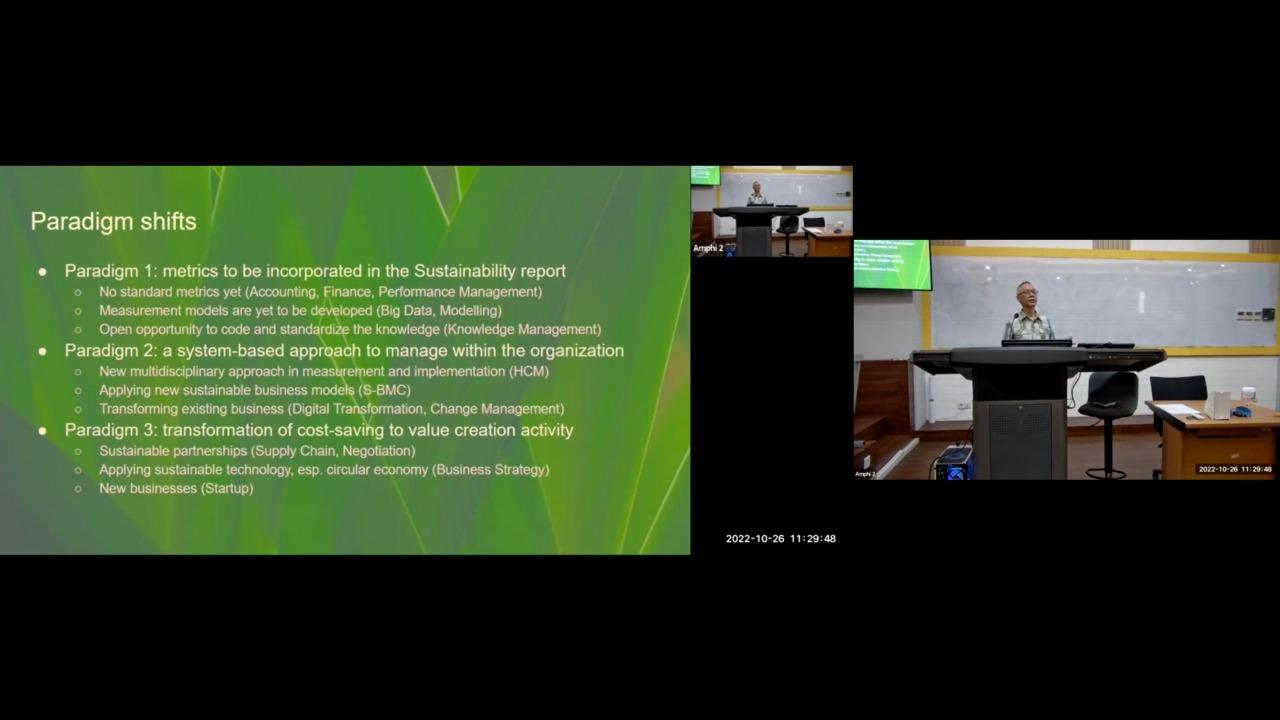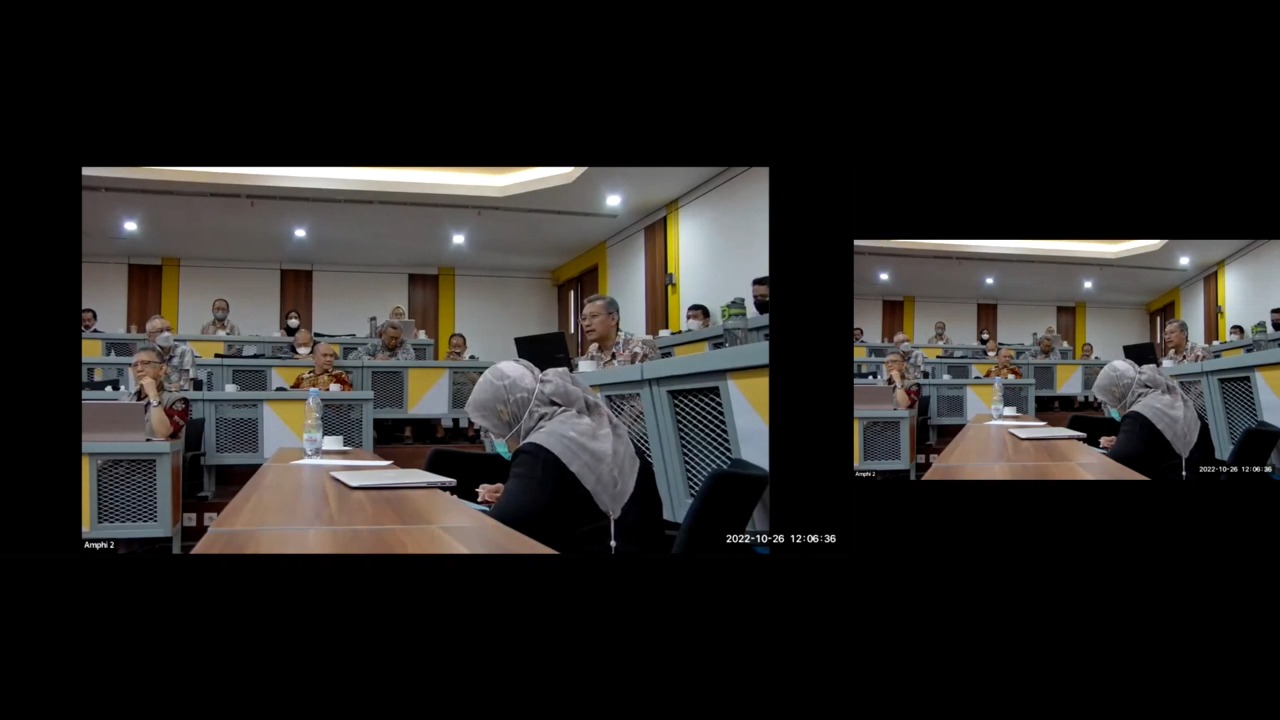SBM ITB organized a workshop on the Development of Educational Institutions towards Environmental and Social Organizational Governance on Wednesday (26/10/2022). The topic was brought up because of a paradigm shift, from which companies previously only conducting corporate social and environmental responsibility (CSR) programs to becoming companies managing organizations based on environment, social and governance (ESG).
This event aims to develop the work pattern of SBM ITB to educate and shape future leaders to positively impact society and their environment. The workshop was provided by Budi Permadi Iskandar, an Assistant Professor of SBM ITB, Business and Marketing Strategy Interest Group.
 According to Budi, the ESG principle is an advanced form of business, a process of maturing an organization. Good organizational governance can uncover potential risks (data security, extreme weather, product quality, fraud, health and security) and identify opportunities (water efficiency, workforce diversity, energy use, supply chain management, clean technology).
According to Budi, the ESG principle is an advanced form of business, a process of maturing an organization. Good organizational governance can uncover potential risks (data security, extreme weather, product quality, fraud, health and security) and identify opportunities (water efficiency, workforce diversity, energy use, supply chain management, clean technology).
“Indeed, there are many challenges that every organization can face in applying this principle. However, by implementing this, it is hoped that we can bring the organization’s maturity in a better direction. Let’s start and be the leader again,” said Budi.
Budi added that there were three major paradigm shifts in adopting ESG. First, corporate governance, originally just a mere transmission of goals, has become a deep understanding through meaning and optimally applied. The opportunity that emerges from this new paradigm is that metric standards are still empty. It can be interpreted as equality of opportunity because all universities can make metric standards, measurement models and optimal knowledge management standards.
The second is a paradigm shift from a silo to a system. The work pattern of social and environmental responsibility in the future will not stand alone as a part of the company, instead entering into an integrated system to better impact corporate governance.
The opportunity here is that every educational institution can form a new system that can regulate the organization so that it can run even better. Such as conditioning new multidisciplinary approaches in measurement and implementation, implementing new sustainable business model canvases, and transforming old business processes into new ones.
The last is changing the mindset of saving expenses into a value-creation process. The pattern of work, previously only focused on reducing costs, has become residual optimization through the creation of useful and meaningful value.
This enables the opportunity to create a sustainable transformation of cooperation, the application of technology and a circular economy, and develop new start-up businesses with the theme of sustainable development values.





